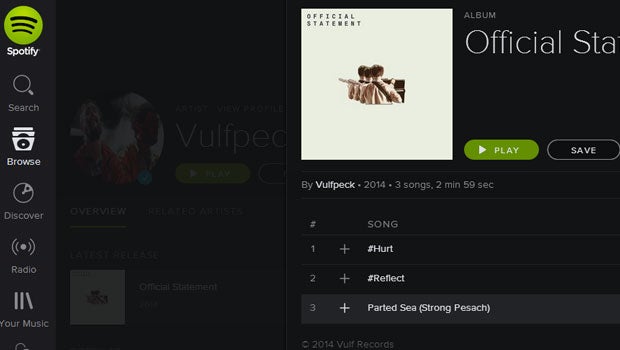Band that earnt $20,000 from an album of silence have been asked by Spotify to remove it

The band Vulfpeck asked its 1000 or so fans to put the silent album on while they slept, racking up royalty payments at a rate of around $0.005 per play.
The idea was that by earning money via Spotify, the band would then be able to play a series of free concerts, and would target areas of the US that had listened most to the album. It’s kind of a cool idea, and it’s also a fairly clever dig at music royalties and the fairly tiny sums of money involved in each “play”.
That said, the band’s initial video about the project indicated that someone putting the album on all night would generate $4 in revenue for Vulfpeck.
Spotify apparently emailed the band’s frontman Jack Stratton saying that while the company thought it was funny, and a good publicity stunt, it was in violation of Spotify’s terms and conditions. It asked him to remove the album, which he seems to have done. He has, however, replaced it with another album, which contains a spoken-word track explaining what happened.
The album also has a middle track of, you guessed it, silence, and a final original instrumental composition. It’s all a bit odd to be honest, but we wouldn’t be all that surprised if the band is able to earn even more money from this new endeavour.
On the flip side, Vulfpeck needs to be careful, because in 2002 musician Mike Batt had to pay a “six figure sum” to settle a lawsuit by the publishers of US musician John Cage who had originally published a silent piece of music, and claimed Batt was in violation of copyright law.
The music industry is a very, very silly place sometimes.
Read more: Spotify vs Napster vs Rdio vs Pure Music: Apps, Sound Quality
Via: Vice

